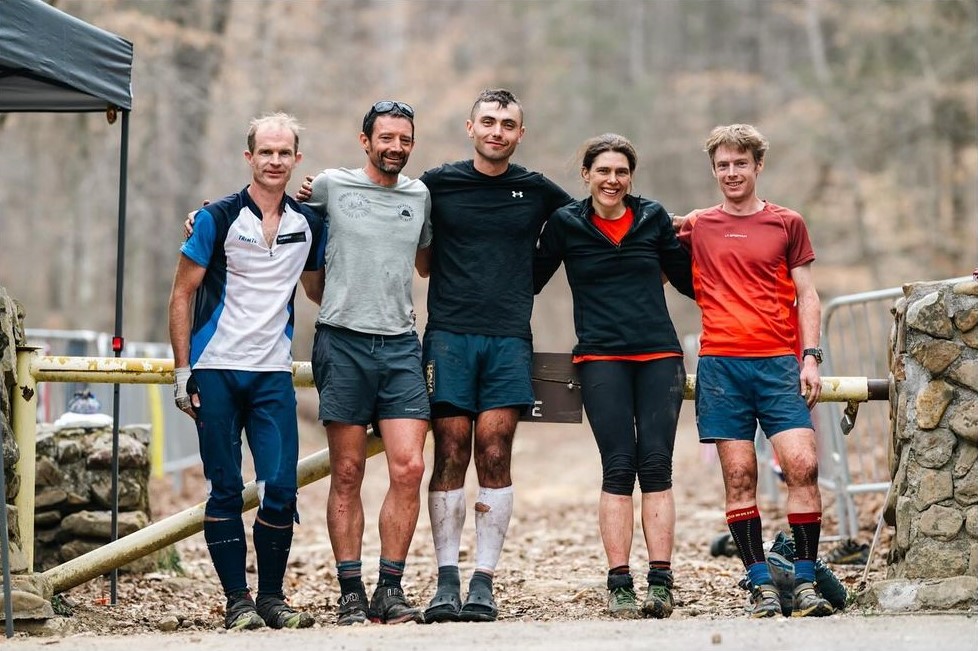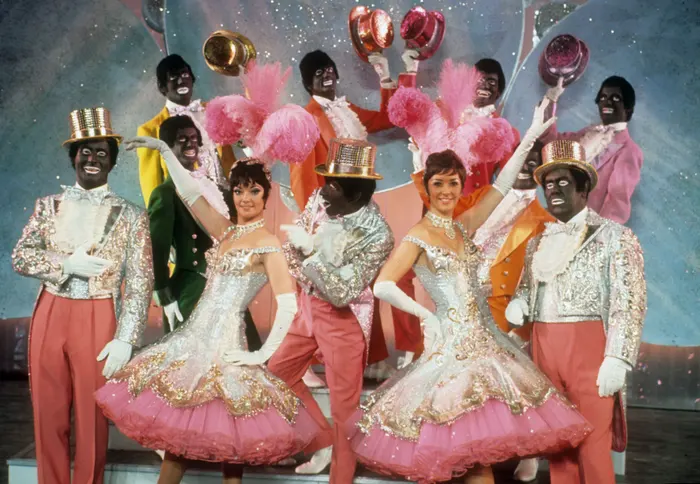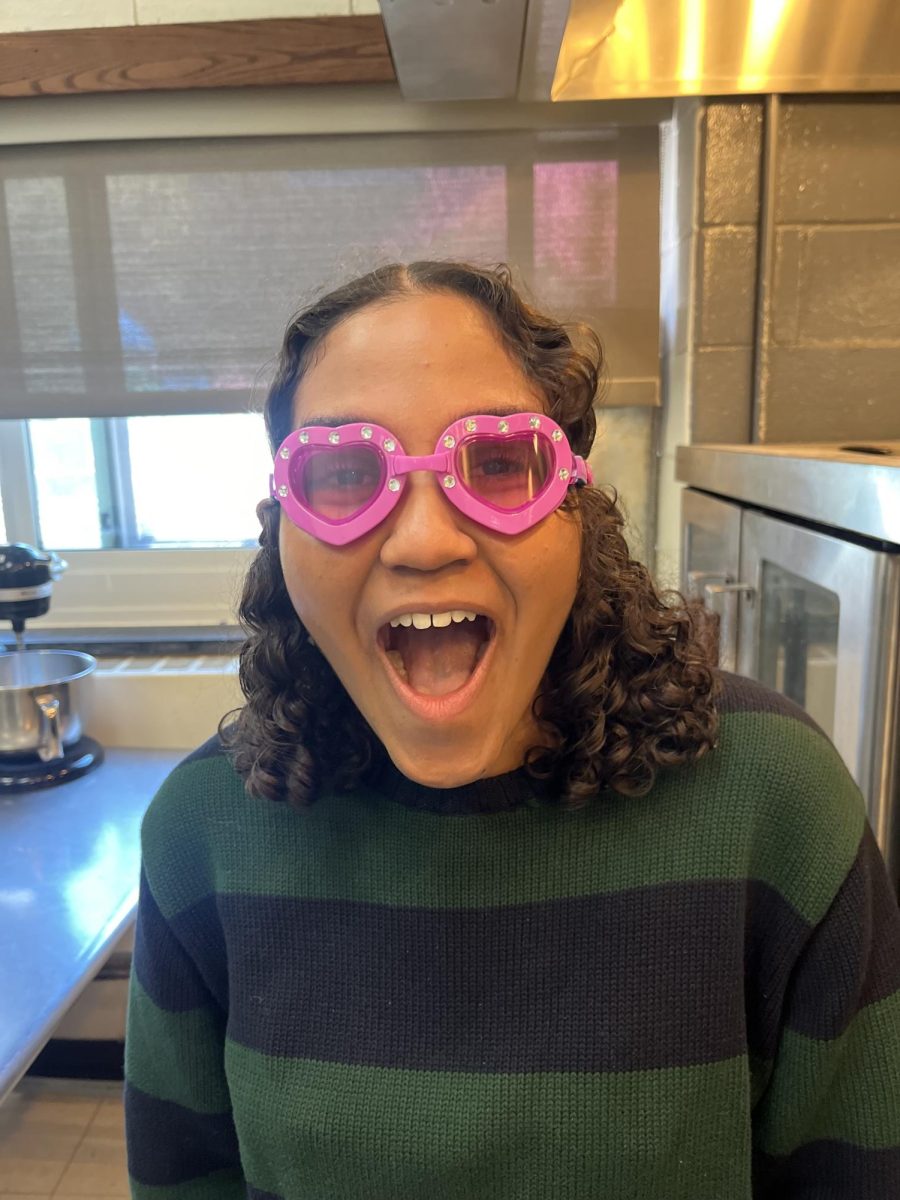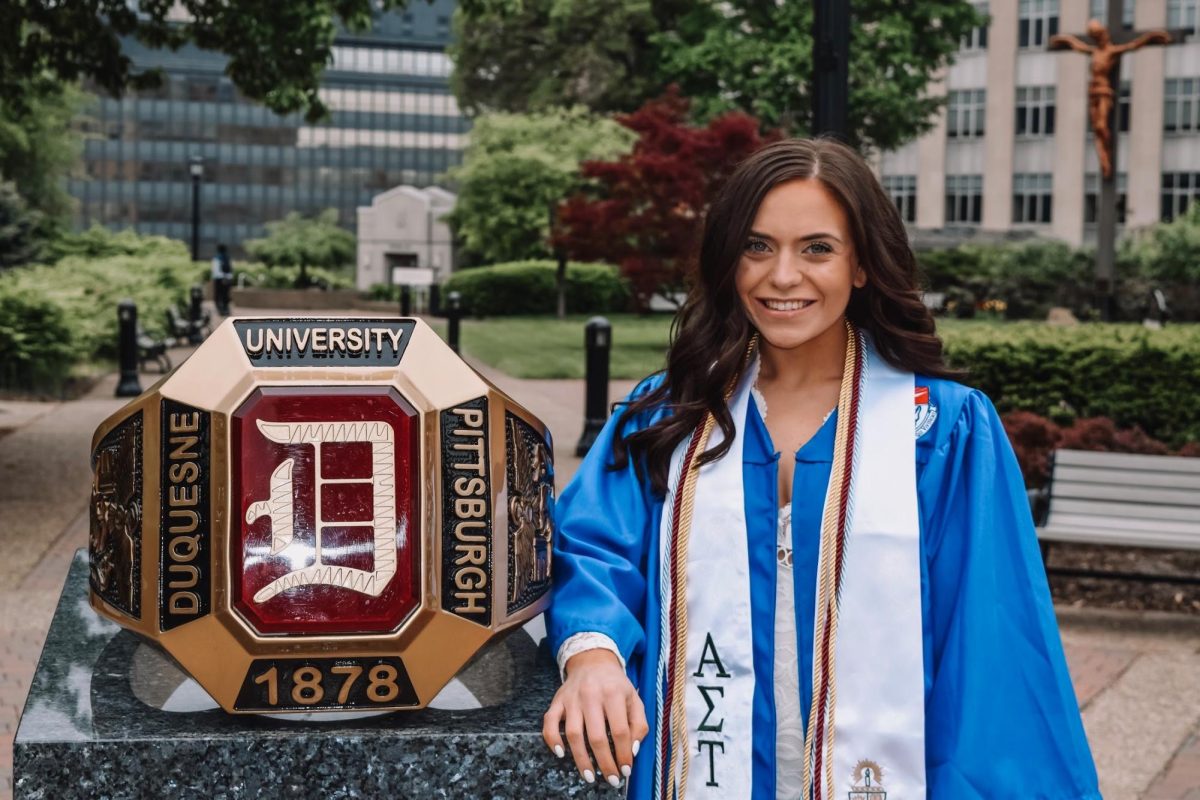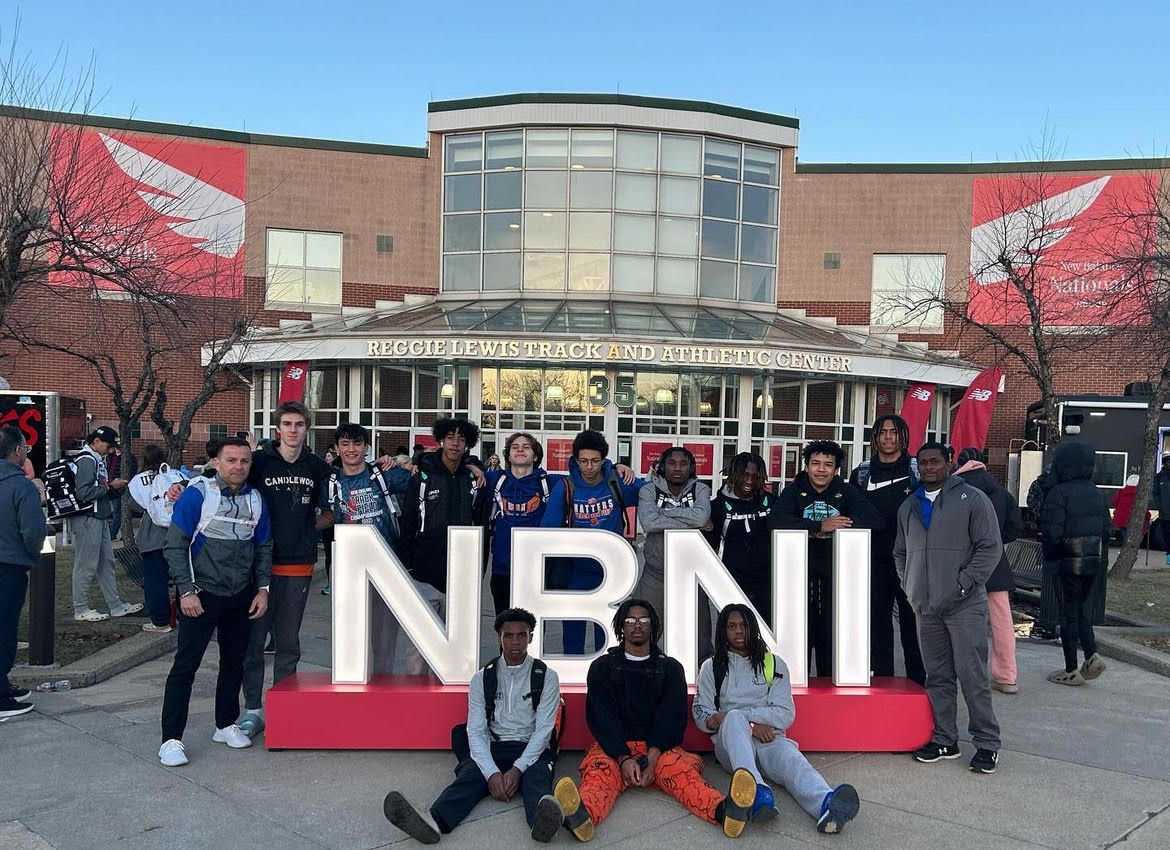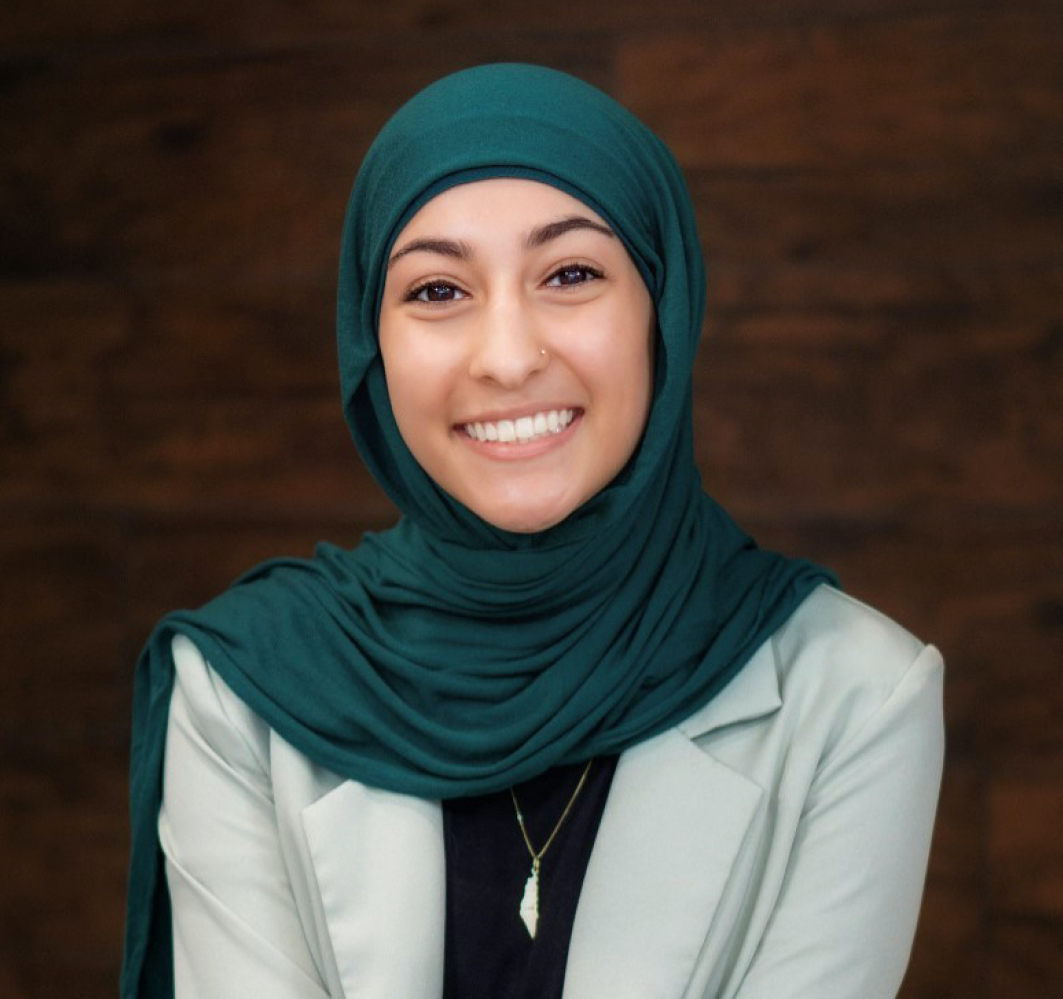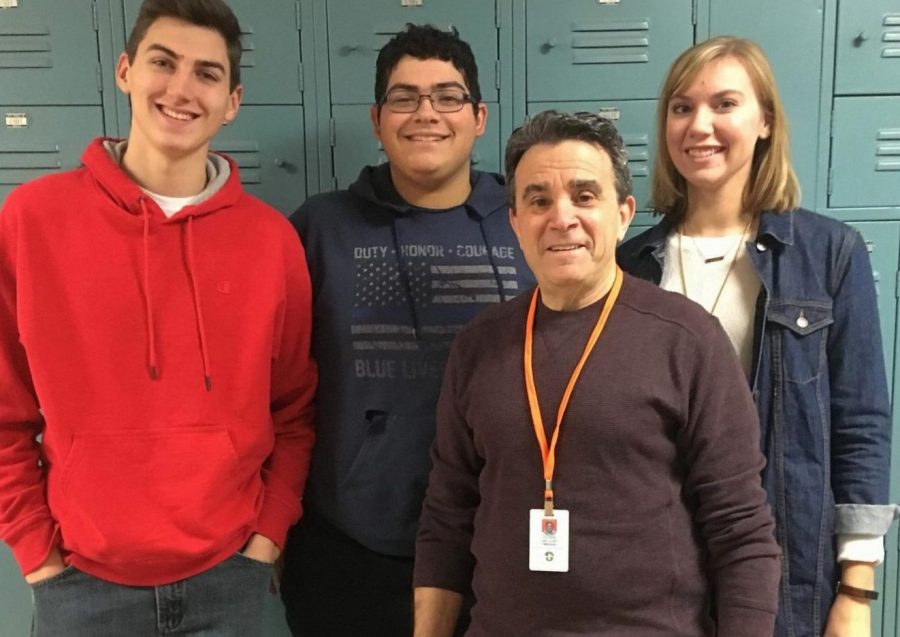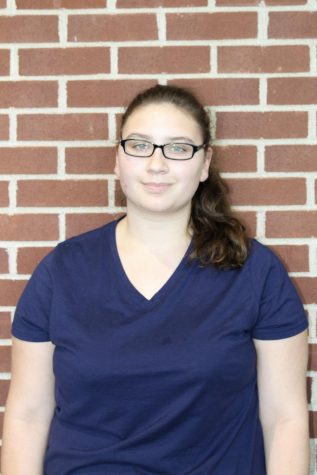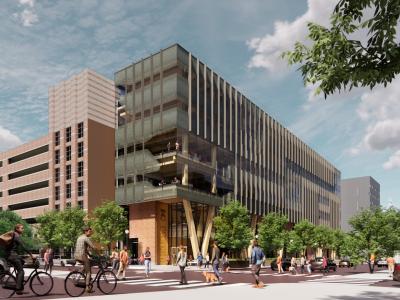DECO students to receive associate’s degree this year
NVCC professor, Gregory Fimmano, stands with graduating students Theodore Hodgdon, Gabriel Campos, and Kayla Downs.
December 14, 2018
The school’s first cohort of the DECO program — which began four years ago — will see five seniors graduating in 2019 with an associate’s degree alongside their high school diploma
The graduating students received their degree in one of two areas, General Studies or Computer Systems Information Technology. In Computer Systems, graduating students include Gabriel Campos, Theodore Hodgdon, Jerfrey Martinez, and Francis Sanchez. In General Studies, Kayla Downs.
In addition, Veronica Becker, started in the DECO program and earned her high school diploma in three years instead of four. After receiving her diploma, she continued pursuing a Liberal Arts & Sciences degree at Naugatuck Valley Community College. She will be receiving the degree on January 1st.
The rest of the students will be officially earning their degrees in August, as NVCC can’t grant students degrees without a high school diploma. However, they will also have the opportunity to walk in the 2019 graduation ceremony on May 23rd at 2pm at the Palace Theater in Waterbury.
“Graduating Summa Cum Laude at 18 is a pretty amazing thing,” Downs, one of the graduating seniors, said.
Campos, another graduating senior added, “It makes all the hard work me and my peers put in worth it. It makes my parents really proud that I was able to complete both my high school diploma and associate’s degree in 4 years.”
DECO’s first graduating class is referred to as “cohort one.” Cohort one began in August 2015, consisting of 99 students when it began and 69 students currently.
The program is designed to to prepare students for post-secondary education and career readiness. Students in the program take free classes at NVCC and work towards an associate’s degree in anywhere between four to six years.
Students are allowed to sign up and pay for any classes they need that aren’t offered for free. NVCC also grants credit for a three or higher on AP Exams. In addition, students can pay a fee to take the CLEP exam for a subject and, if they score high enough, they may place out of the required college course.
Classes that are offered for free take place during the school day, after school, or during the summer. Dr. Sarah Roy, director of the Danbury Early College Opportunity program, solicits funds for these classes in addition to coordinating the students high school and college schedules, reaching out to local companies for internship opportunities, and facilitating the relationship between the high school and college.
When this program first began, administrators weren’t sure if they would need to make changes to the program based on how cohort one turned out. However, the success of the first cohort has proven that not much needs to be changed.
“I like how the model is going. The only other thing I would add is expanding it to include other majors, but that would require more support and funds from the state of Connecticut,” said Roy.
NVCC dean, Sarah Gager, has also worked with with DECO students to plan out their courses and make sure they graduate in four years as planned. Gager works at the Waterbury campus, but makes trips to the high school to have advising sessions with the students once a semester.
“Students have excelled and have earned more credits than we initially expected. We are all so very proud of their incredible accomplishments,” Gager said. “Having some of our first cohort students complete their degree program and participate in commencement in May will be a proud moment for us all.”
However, the success the students achieved did not come without obstacles for both them and Roy. “Courses and textbooks are expensive. Due to this we had to change the number of students we accept in each cohort from 100 to 60,” Roy said.
During the students freshman year of the program, they were assigned specifically to team four, consisting of teachers Jared Cowden, Lillian Hope, Nicholas Foley, and Devin Samaha.
Foley and Samaha, alongside Diane Mohs and Stephanie Spiridon, also taught the course Workplace Learning 1– a required class to get students ready for the workplace.
“Those students have sacrificed a great deal to achieve their degrees and the cords they will be wearing on graduation day; and I am also happy for the graduating DECO students’ parents,” Samaha said.
Foley added, “I am very impressed at their ability to juggle everything in high school and college work. This shows how driven and hardworking they are. I am excited to see the future of the program and the students benefit from their hard work.”
Campos credits Foley and Samaha for helping him throughout his journey in DECO. “I have to give my hat off to my two favorite teachers Mr. Samaha and Mr. Foley. I know that if I ever needed their help with anything, they would help me,” said Campos.
Gregory Fimmano, a NVCC professor, also played a major role in the success of the DECO students. In their sophomore year of high school, they began their first college class, which was taught by Fimmano.
Fimmano has worked over 25 years in information technology in both the technology support side and the software development side as a verification and validation engineer. He led the verification and validation test activities for the release of the EMR (Electronic Medical Record) application, and the telehealth home monitor.
When Fimmano was offered the opportunity to teach a class at the college, he was under the impression that he would be teaching at the Danbury campus to traditional college students. After learning that he’d be teaching high-schoolers, he was concerned.
“I knew nothing about the program and had no idea what to expect. To be perfectly honest, I was not sure I wanted to teach at the high school,” said Fimmano. “This state of mind changed very quickly when I realized this was one of those moments in life where you are given an opportunity to work on something from the ground up. I knew I was going to be part of something pretty unique. I am so glad I didn’t change my mind.”
After going through the program themselves, the graduating students have accumulated a multitude of tips and advice for the younger DECO students.
Downs, who plans to go on to receive a bachelor’s degree, said, “You don’t have to take summer classes to finish the program. Take AP classes. You can get credit for classes if you receive high enough scores on the AP Exams. Also, be driven throughout your time in the program.”
Campos, who is still deciding whether or not he wants to go on to receive his bachelor’s or go into the navy, advises to “Make friends in the program. You’ll want to work on everything together, even if it’s different work. You’ll have company and support as you attempt to complete every assignment.”
On the flip side, Roy’s advice to the students who are graduating this year and going on to pursue something new is to “find your passion, it’s not work if you love what your doing. Keep setting goals for yourself and pushing yourself toward the next thing, even if it’s just a small step.”








